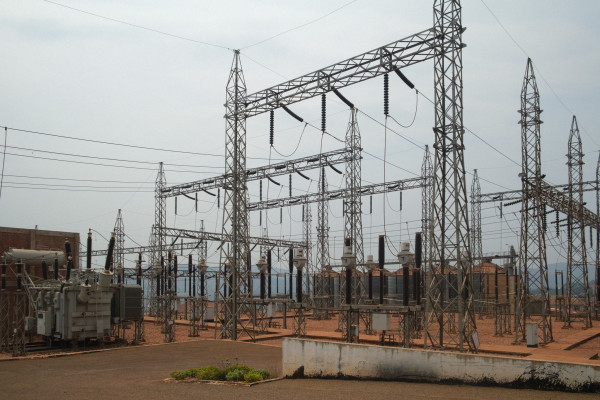Niger: African Development Bank extends loan of over $144 million to enhance energy access and economic competitiveness

The Board of Directors of the African Development Bank Group (www.AfDB.org) has approved a loan of $144.27 million to Niger for the first phase of a program that will reform energy sector laws and address the country’s critical power shortage.
Niger’s Energy Sector Governance and Competitiveness Support Program is expected to address governance challenges by strengthening public financial management systems, particularly tax revenue mobilization and tax revenue control system. It will also support the clearance of domestic arrears, public-private dialogue, and the adoption of an industrial and commercial policy to bolster support for Nigerien businesses.
“This program represents our commitment to supporting Niger’s economic recovery and energy independence,” said African Development Bank Director General for West Africa Lamin Barrow. “By improving access to energy and strengthening governance frameworks, we are helping to lay the foundations for sustainable growth that will benefit all Nigeriens, particularly the most vulnerable populations.”
The Bank’s support will underpin ambitious energy objectives, including increasing national electricity access from 22.5% to 30% by 2026 while boosting manufacturing’s contribution to GDP from 2.5% to 3.8%. A key component focuses on the renewable energy capacity development framework and includes plans to generate 240 MW of solar energy by 2030, with 50 MW coming onstream before December 2026.
The program particularly emphasizes social inclusion, with specific measures to support internally displaced persons, women, and youth. With more than 507,000 internally displaced persons nationwide due to security challenges in the Sahel region, targeted interventions will ensure that vulnerable populations benefit from improved economic opportunities.
The Nigerien economy has shown remarkable resilience despite challenges, with GDP growth climbing to 8.8% in 2024, and oil production expected to increase from 20,000 to 90,000 barrels per day by 2026. Still, only 22.5% of the population enjoy access to electricity, one of the lowest rates in West Africa. In rural areas, where 80% of Nigeriens live, only 4.5% have access to electricity, forcing families to rely on biomass for 94% for their energy needs.
Niger’s strategic energy compact, formally adopted by decree, provides the framework to attract $527 million in private sector investment by 2030. The project will establish high-level coordination mechanisms and update national energy policies to create an enabling environment for private participation in mini-grid developments crucial for rural electrification.
The program positions Niger to capitalize on its vast renewable energy potential while building governance systems that support inclusive and sustainable development.
Distributed by APO Group on behalf of African Development Bank Group (AfDB).
Media Contact:
Natalie Nkembuh
Communication and External Relations Department
media@afdb.org
About the African Development Bank Group:
The African Development Bank Group is Africa’s premier development finance institution. It comprises three distinct entities: the African Development Bank (AfDB), the African Development Fund (ADF) and the Nigeria Trust Fund (NTF). On the ground in 41 African countries with an external office in Japan, the Bank contributes to the economic development and the social progress of its 54 regional member states. For more information: www.AfDB.org



